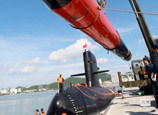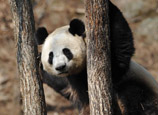
The United States has excluded or imposed high tariffs on many Chinese products for so-called dumping, threat to its national security, patent infringement, and other reasons. The U.S. International Trade Commission (USITC) recently launched Section 337 investigations against five Chinese electronics companies based on complaints filed by certain U.S. companies.
Related products may be banned forever
The USITC voted on Jan. 25 to institute four Section 337 investigations, two of which involve five electronics companies on the Chinese mainland and Taiwan. The products at issue are certain mobile handset devices and related touch keyboard software as well as protective cases for portable electronic devices.
Certain U.S. complaints alleged patent infringement in the importation into the United States and sale of the above products, requesting that the commission issue an exclusion order and a cease and desist order.
The Section 337 investigation is a quasi-judicial trade measure the United States takes against imported products involving intellectual property infringement and other unfair acts. Once a Section 337 investigation is initiated, the products in question and even similar products may be banned from the U.S. market forever.
Section 337 investigations can protect intellectual property rights, but have also become the most cost-effective and efficient non-trade barrier adopted by many U.S. companies against foreign competitors. Any country’s trade laws and regulations can be abused for protectionist purposes, said Charles Blum, a former assistant U.S. Trade Representative and current president of International Advisory Services Group.
Experts noted that as Chinese companies have gradually enhanced their competitiveness and independent innovation capability in recent years, more and more Chinese products have become victims of Section 337 investigations.
Wang Guiqing, vice president of the China Chamber of Commerce for Import and Export of Machinery and Electronic Products, believes that given increasingly fierce international competition, certain U.S. companies have alleged patent infringement and taken the Section 337 investigation as a business strategy to drive out competitors and grab a larger market share.
Chinese companies are frequent targets of Section 337 investigations
Chinese companies have been the biggest victim of Section 337 investigations for many years. According to data from the USITC, Chinese companies suffered as many as 13 Section 337 investigations last year alone, of which, 12, or more than 90 percent, were initiated based on patent infringement complaints.
The Chinese companies involved in a Section 337 investigation will suffer heavy losses no matter whether they win the case or not. They may have to pay hundreds of millions of U.S. dollars for various charges, including patent licensing fees, compensation, attorneys’ fees and interest, intellectual property royalties, and infringers’ unfair profits. If they do not respond, they will lose the case automatically, and a general exclusion order will be issued.
Cao Xinming, deputy director of the Center for Studies of Intellectual Property Rights under Zhongnan University of Economics and Law, said that as Chinese exports to the United States have gradually changed from daily necessities to high-tech products in recent years, U.S. companies have frequently used such non-tariff trade barriers as Section 337 investigations to maintain their market dominance.
Establishing Chinese version of Section 337 investigations
Chinese companies should respond actively to Section 337 investigations because a general exclusion order may deprive the whole industry of access to the U.S. market.
Chinese companies used to be helpless in the face of Section 337 investigations, but are now actively responding to and guarding against such investigations. Chinese companies responded to 65 percent of such investigations in 2011, and are winning more and more Section 337 cases.
Experts noted that while domestic companies are actively responding to such investigations, the Chinese government should establish a sound aid mechanism for protecting domestic companies’ rights abroad as well as a Section 337 investigation early warning mechanism. Furthermore, domestic companies should strengthen efforts to own more intellectual property rights, and seek assistance from industry associations and related government agencies in a timely fashion.
Read the Chinese version at: 美又借“专利壁垒”玩贸易保护, Source: People's Daily Overseas Edition, Author: Luo Lan
















 Buildings collapse after subsidence in S China
Buildings collapse after subsidence in S China


![]()
